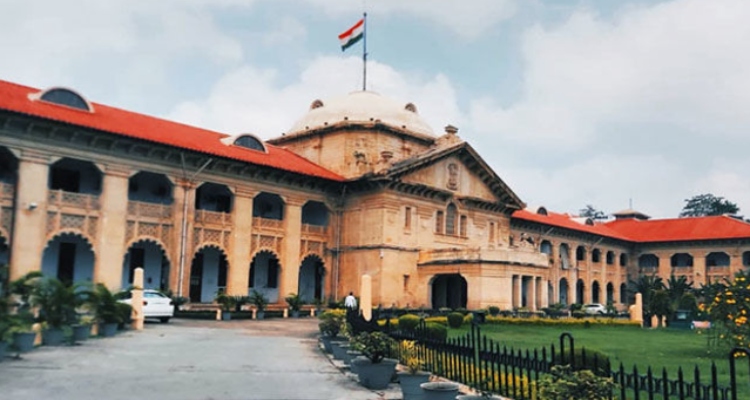
The Allahabad High Court has declined to quash the criminal proceedings initiated against six Muslim men who were alleged to have carried a Tiranga in a religious procession, on which Quranic verses (Ayat and Kalma) were inscribed.
A single bench of Justice Vinod Diwakar stated that the applicants’ actions were punishable under the Flag Code of India, 2002, and constituted a violation of Section 2 of the Prevention of Insults to National Honour Act, 1971.
Emphasizing that the Tiranga, India’s National Flag, symbolizes the unity and diversity of the nation, transcending religious and cultural differences, the Court remarked: Importantly, the Court also noted that such incidents could be exploited by those seeking to create communal discord or fuel misunderstandings between different communities. Therefore, the Court stressed the need to ensure that the actions of a few individuals should not be used to stigmatize an entire community.
The UP Police had booked the accused—Gulamuddin and five others—last year under Section 2 of the 1971 Act. Seeking bail in the case, they moved the Court, where their counsel argued that the investigation did not clarify whether the flag mentioned in the FIR was a Tiranga or another flag with three colors, and that the police could not provide evidence suggesting any mischief with the national flag as specified in Sections 2 and 3 of the 1971 Act. They also contended that the police had subsequently planted the national flag after the FIR was registered and that the applicants were falsely implicated in the case.
On the other hand, the AGA, representing the state, argued that the applicants’ names were mentioned in the statements of police witnesses Constable Khursheed Alam, Eshanullah, and Ramdas. The AGA further stated that after the Tiranga was seized, it was revealed that some Arabic text written on it was identified as containing Ayat and Kalma when transcribed.
In light of these submissions, the Court observed that the issues raised by the applicants’ counsel required factual determination, which could only be adequately addressed by the trial court. The Court found no substantial illegality, perversity, or error in the impugned summoning order that would warrant interference under Section 482 CrPC. Consequently, their petition was dismissed.




